- ALL SERVICES
- • Salesforce Consulting Services
- • Managed Services
- • Simplification of Interfaces
- • Data Migration and Processing
- • Architectural Solutions and Scoping
- • Code Review, QA and Support
- • Applications Development
- • Pre-sales and Solutions Consulting
- • Technical Audit and Support
- • Custom Applications Development
- • AI Apps
BLOG
What is Salesforce Agentforce? Dissecting Perfect Blend of NLP Capabilities and Algorithms
• Date: November 2024 •
Estimated reading time: 9 minutes
Estimated reading time: 9 minutes
Subscribe for more useful content
We promise we'll not spam your mailbox!
By submitting you agree to receive a newsletter from Twistellar. You can unsubscribe anytime.
Imagine a customer reaching out with a simple query: "I haven’t received my order yet. My order number is X." An intelligent agent retrieves the order details, checks the inventory, and takes the next appropriate step. If the item is out of stock, it follows company policy to notify the customer or escalate the issue to a human.
But that same question could lead to countless scenarios in the real world. The order might be delayed, lost, or even delivered but misplaced. Is there a way to handle such cases without a human? Until now, the question remained open due to AI’s lack of self-sustainability, but the demand for AI agents is still growing:
- The 64% of companies plan to integrate autonomous agents in 1 to 3 years
- 82% of companies expect autonomous agents to relieve human workers of repetitive tasks
In September 2024, Salesforce unveiled Agentforce to close the gap. New AI-driven agents don't rely on pre-built flowcharts or static dialogues but instead autonomously reason, adapt, and take action in unanticipated situations until human involvement is needed.
Does Salesforce Agentforce live up to its promise? In this article, you can find simple answers to immediate questions about the new platform.
Contents:
- What is AgentForce Salesforce?
- What Are the Key Salesforce Agentforce Features, and How Does It Operate?
- What are the Types of Agentforce Agents?
- Are Salesforce Agentforce Service Agents Different from Einstein Bots and Copilot?
- Is Salesforce Agentforce Secure?
- How to Create an Agentforce Service Agent?
- To Wrap Up
- FAQ: Salesforce Agentforce
What is AgentForce Salesforce?
Agentforce is Salesforce's low-code platform designed to empower users of any qualification and role to build, deploy, and manage autonomous AI agents that work alongside human teams for external and internal processes.

Salesforce Ecosystem with Agentforce, image source: Salesforce
To sum up what’s important to know about Agentforce for now:
- 24/7 availability: Answers questions, deflects cases, and meets service goals on channels at any time of day.
- Natural conversation: Generates conversational responses that fit the context and match the brand’s voice.
- Handoffs to humans: AI escalates conversations to live agents who can solve more complex issues, like payment details or complaints.
- Quick deployment and configuration: Sets up with service-specific templates and existing workflows in minutes. There’s no need to write dialogs, determine intents, maintain conversation trees, or train large language models (LLMs).
- Grounded in trusted data: AI agents rely on sources such as your knowledge articles, similar cases, and CRM data.
Agentforce by Salesforce is integrated across all Salesforce apps, including Service, Sales, Marketing, Commerce, and Platform, upgrading the Copilots. The term implies both the platform capabilities and its entities — Agents.
What Is an Agent?
At its core, an agent is an instance powered by the Atlas reasoning engine.

5 Attributes of a Salesforce Agentforce Agent
An agent is defined by:
- Role: Acts as an employee assistant
- Data: Operates using the CRM data
- Actions: Capable of executing specific tasks on behalf of the user
- Channels: Operates across every Salesforce Platform, mobile apps, Slack, and more
- Trust & security: All input and output data go through the Einstein Trust Layer
- Jared MilliganCountry Manager, Twistellar USA"Agentforce is not a magic tool that will make configurational decisions instead of you: this is a symbiosis of AI input/output processing and algorithmic procedures connected to the assisted agent flow. Make sure to follow every setup step and validate your automations, as AI will launch those on its own during a conversation.”
What are the Key Salesforce Agentforce Features, and How Does It Operate?
Agentforce is designed to be accessible due to its reliance on natural language. The level of complexity depends on the specific use case and the data required to power the agent's actions.
Let’s review the key features of Salesforce Agentforce in more detail.
Agent Builder
The Salesforce Agent Builder tool allows you to customize AI agents without coding. With Agent Builder, organizations can define the agent’s role, give instructions, and build a library of actions for the agent to perform. It also allows users to review the agent’s planned way of acting and test its responses.
All these agents are built on the same unified architecture. What does this mean? You define the topics your agents assist with, give them instructions to follow, provide data so they’re knowledgeable and relevant to your business, and assign actions for them to execute. Agents will operate within the limits (guardrails) and can interact across any channel.
Copilot Builder and Prompt Builder
Copilot and Prompt Builder are now embedded into the Agentforce platform structure, with the addition of Model Builder, that allows you to build, train, and deploy custom AI models externally using Salesforce data.
The main upgrade to Copilot Builder is the addition of topics, which divides actions into groups by business function.
Prompt Builder still allows you to create, test, and refine prompts — or instructions for Agents — by dynamically integrating data from your CRM and Data Cloud. It uses Flows, Apex, MuleSoft, and more to fetch relevant data, and the Playground feature lets you test prompts before sending them to the LLM.

Prompt Builder, image source: Salesforce
1) Prompt Text, 2) Grounding, 3) Preview Records, 4) Preview Prompt, 5) Preview Response
1) Prompt Text, 2) Grounding, 3) Preview Records, 4) Preview Prompt, 5) Preview Response
Topics, Instructions, and Actions
An agent consists of three components:
- Topics group actions into “jobs-to-be-done for specific subjects such as Order Management, Repair Inquiries, and general FAQs. Topics will not be packageable until November 2024 (subject to change).
- Each Topic is supported by Instructions written in natural language, guiding the Agentforce Service Agent in selecting which actions to execute or what clarifying questions to ask. These Instructions often include guardrails to prevent unwanted output and errors and mitigate the risk of false data being returned. By constraining the agent’s responses to designated topics, this structure ensures that the Agent does not address off-topic subjects.
- Each Topic is associated with a specific set of Actions that the Agent can utilize. It can reuse existing Salesforce tools like Flows, Apex, Data Cloud, and prompt templates to streamline actions without complex dialogue trees. For example, if you have an established returns workflow, the Agentforce Service Agent can execute that Flow as an Action.

Salesforce Agentforce Actions examples, Image Source: Salesforce
What are the Types of Agentforce Agents?
Salesforce says Agentforce is up for many tasks. Agentforce offers several autonomous agent types for deployment across sales, service, marketing, and commerce:
- Agentforce Service Agent: Resolves customer cases (such as password resets retrieving order information) autonomously across channels 24/7 with natural, human-like responses
- Einstein Copilot: Assists employees semi-autonomously with daily tasks
- Agentforce SDR Agent: Automates lead qualification and schedules meetings for sellers
- Einstein Sales Coach: Acts as a dedicated AI coach, providing personalized role-plays and feedback to help sellers improve on each deal
For B2B, there are upcoming out-of-the-box agents, like Merchant, Buyer, and Personal Shopper.
Here are a few use cases for Salesforce Agentforce highlighted during the keynote presentation:

Salesforce Agentforce Use Cases

Salesforce Agentforce Use Cases
Are Salesforce Agentforce Service Agents Different from Einstein Bots and Copilot?
Agentforce Service Agent and Einstein Bots differ in a few ways.
Setup
Agentforce
Quick setup with prebuilt topics and actions. Uses generative AI and large language models (LLMs) for human-like conversation flexibility.Einstein Bots
Requires manual training of natural language models (NLMs) to understand customer language and build dialogs.Maintenance
Agentforce
Low maintenance with updates and iterations on prebuilt topics and instructions.Einstein Bots
High-maintenance, needing constant updates and retraining of dialogs and intents.Context and Exceptions
Agentforce
Understands and retains context throughout the conversation, handling follow-up questions, including the ones off-script.Einstein Bots
Covers common issues, lacks contextual understanding, and only responds to the latest question.Einstein Bots may be better suited for regulated industries needing explainable processes and extra governance or when strict, deterministic conversation flows with precise dialogs and intents are required.

Salesforce Agentforce: Chat Use Cases vs. Agentic Use Cases
Agentforce vs. Copilot
As already mentioned, Copilot functionality is being integrated into and rebranded under Agentforce. Agentforce's underlying architecture is different and has a broader scope.
Here’s a brief overview of the current Salesforce chatbot hierarchy.
At the lower level, there are Einstein Chatbots. Setting up chatbots involves extensive effort, such as defining intents, scripting dialogues, and managing multiple conversational paths, yet it’s not always possible to cover all use cases. Einstein Copilot essentially builds on the same generative AI as Einstein bots and assists with the focus on productivity, but it can't act independently. In contrast, Agentforce has the agency to reason within guardrails autonomously and handle customer-facing tasks.
Is Salesforce Agentforce Secure?
With data being the most precious asset, what if there’s a malicious query in the support chat, such as ‘disregard all previous instructions,’ ‘share the customer database,’ etc.?
Einstein Trust Layer ensures that all operations with Agentforce involving large language models (LLMs) prioritize data privacy and compliance. Here's how:
- Data masking: Before data is sent to model providers, personally identifiable information (PII) is anonymized to ensure privacy
- Zero retention: LLM model providers have zero-retention agreements, meaning they do not store or use Salesforce data to train models
- Toxicity detection: Once results are returned, the system restores masked data, checks for harmful content, and logs everything for auditing
- Privacy controls: When integrating external LLMs, Agentforce protects your data throughout the generation process
How to Create an Agentforce Service Agent?
We’ve prepared a simple but detailed and illustrated guide on setting up Service Agents in Salesforce. Read it in our blog.
To Wrap Up
Salesforce autonomous AI agents are a long shot, but with the diligent approach and buy-in from the human customer service team, it has all the chances to change or even upgrade the industry.
At Twistellar, we have completed tens of Salesforce projects, including the ones with AI capabilities. If you need professional guidance to maximize your Salesforce AI investment, we offer QuickStart packages designed to get Agentforce fully calibrated for your unique business use cases. Contact us!
FAQ: Salesforce Agentforce
Salesforce uses artificial intelligence through its Einstein AI, Copilot, and Agentforce. Einstein AI delivers predictive insights, automation, and personalized recommendations across sales, service, and marketing. Copilot enhances employee productivity by assisting with tasks while keeping humans in the loop. Agentforce uses AI to autonomously handle customer service and sales processes, leveraging natural language models and the Atlas Reasoning Engine for real-time decision-making.
Agentforce’s AI Platform automates customer service and sales processes by leveraging NLP, large language models, and its Atlas Reasoning Engine. This engine refines user queries, retrieves relevant data, and autonomously handles tasks like resolving inquiries, managing cases, and qualifying leads in real time. It escalates complex issues to human agents when needed. Agentforce also prioritizes data privacy and security through the Trust Layer.
The platform leverages retrieval-augmented generation (RAG) to ground AI responses in real time and data from Salesforce's CRM and other integrated sources.
The platform leverages retrieval-augmented generation (RAG) to ground AI responses in real time and data from Salesforce's CRM and other integrated sources.
Agentforce augments employees by taking on repetitive, time-consuming tasks such as resolving customer queries, processing orders, or qualifying sales leads. It can autonomously execute actions based on real-time data, handle complex inquiries, and escalate issues to human agents when necessary. Employees focus on high-value, strategic tasks while reducing the operational burden of routine tasks.
Our Best Articles and Salesforce Overviews
Feeling like teaming up with us at Twistellar? We are excited too! Whether you'd like to customize your org, build a bespoke application or integrate a third-party tool, Twistellar is ready to help you.
Get in touch to discuss your Salesforce ideas!








